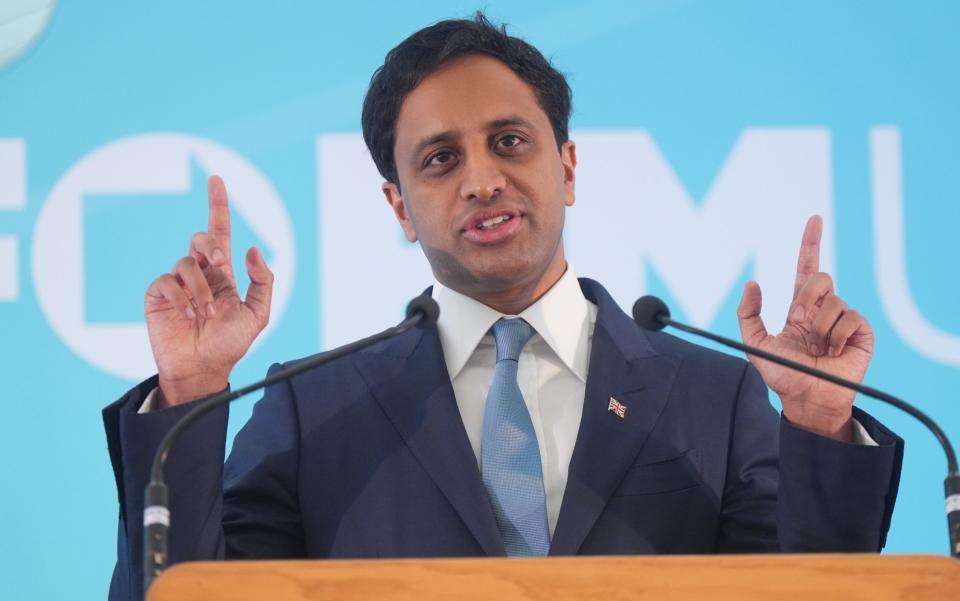More than half of English county council elections could be delayed this spring because of Sir Keir Starmer and Angela Rayner’s devolution plans.
Elections were expected to take place in all 21 county council areas on May 1, as well as in 10 unitary authorities.
But the Government has said local authorities that end up being merged or disbanded could “hold off” going to the polls until reforms are complete.
At least 12 out of 21 county councils have indicated they are interested in taking part in the first wave of devolution plans, according to an analysis by the BBC.
This would mean their local elections could be delayed by a year or more, prompting the District Councils Network to warn that millions could be “deprived of their local democracy”.
ADVERTISEMENT
The county councils where elections could be delayed are Devon, East Sussex, Essex, Gloucestershire, Hampshire, Kent, Norfolk, Suffolk, Surrey, Warwickshire, West Sussex and Worcestershire.
Ministers have set January 10 as the deadline for councils to express their interest in taking part in the programme.
The proposals published by Ms Rayner last month are expected to create “strategic authorities”, bringing councils together in order to avoid duplication.
This could lead to the eventual abolition of dozens of district councils, while cities will have a bigger voice and some county councils are likely to become unitary authorities.
Sam Chapman-Allen, the chairman of the District Councils Network, accused ministers of not letting residents have their say on the reorganisation.
Mr Chapman-Allen said: “The cancellation of the local elections comes after the Government’s general election manifesto neglected to mention that it sought to take power away from communities by replacing district councils with mega-councils.
ADVERTISEMENT
“Democracy is being side-lined with the local electorate being deprived of any democratic opportunity to give their verdict on a major reorganisation that will have far-reaching repercussions for the destiny of thousands of English towns and villages.”
The county council elections are more likely to present a challenge for Kemi Badenoch and the Conservatives than Sir Keir’s Labour because they were last held four years ago at the height of Boris Johnson’s post-pandemic popularity.
The Tories won 1,448 seats in 2021 at those elections, while Labour was reduced to 365 seats and the Liberal Democrats won 293.
Reform UK, which won 14 per cent of the popular vote at July’s general election and are now polling at an average of more than 20 per cent, is likely to perform well in May.
Zia Yusuf, the party’s chairman, told the BBC: “Labour and the Tories are so terrified of Reform’s rise that they are colluding to rob the British people of their democratic rights.”

It comes as an analysis by the Unlock Democracy think tank suggested Labour would benefit most from reported plans to abolish some district councils.
ADVERTISEMENT
The group noted that while Labour runs almost one-third of councils in England, only one in five of those likely to be facing abolition are under the party’s control.
Over a third (36 per cent) of councillors in England represent Labour, although only one in four would have their council group abolished.
The analysis suggested Labour would lose 30 per cent of its councillors nationwide compared to 43 per cent of Tory councillors, 55 per cent of Liberal Democrats and 65 per cent of Green representatives.
Tom Brake, a former Liberal Democrat MP who was deputy leader of the Commons, said: “The majority of councils facing the chop are not under Labour control.
“When you have come to office promising to clean up politics, even the appearance of trying to manipulate the system for your own side can be hugely damaging.
ADVERTISEMENT
“The stench of pork barrel politics hung over the last government. With trust in politics already so low, Labour must give reassurances that there is no whiff of political bias around this decision.”
A spokesman for the Ministry of Housing, Communities and Local Government (MHCLG) said: “No decisions have been taken on postponing elections.
“We will only consider postponing elections for areas where the council concerned have requested it and where it helps an area to deliver reorganisation and devolution to the most ambitious timeline.”
Some of the local authorities considering whether to delay their local elections have been affected by grooming gangs in the past.
Three members of a grooming gang were convicted of rape last year after Devon and Cornwall Police launched an investigation, codenamed Operation Garcia, in 2017.
The abuse came to light after one victim came forward and gave evidence having watched Three Girls, a BBC drama that depicted the investigation into child exploitation in Rochdale.
In East Sussex, four men were jailed in 2015 for attempting to force a vulnerable 16-year-old girl into prostitution and systematically abusing her over two weeks.
Three men from east London who abducted a 13-year-old girl and sexually abused her at a house in Ipswich in Suffolk were jailed in 2013.
And in 2016, two men were convicted of grooming 12 teenage girls they met at a number of shops in West Sussex.
There is renewed public outcry over grooming gangs in the wake of high-profile interventions from Elon Musk, the US tech billionaire, and Labour’s refusal to back a new national inquiry.
EMEA Tribune is not involved in this news article, it is taken from our partners and or from the News Agencies. Copyright and Credit go to the News Agencies, email news@emeatribune.com Follow our WhatsApp verified Channel



